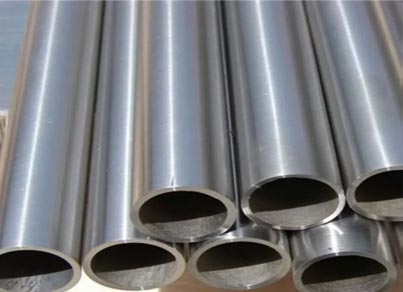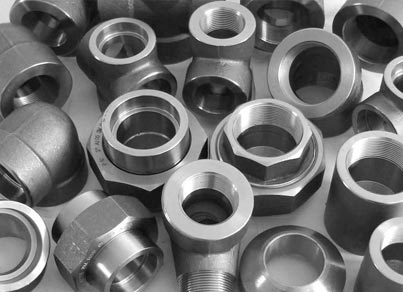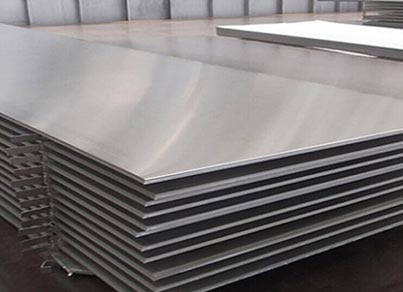

Alloy steel is a versatile and high-performance category of steel that incorporates additional alloying elements into its composition, such as chromium, nickel, molybdenum, vanadium, silicon, manganese, tungsten, and others, typically in amounts ranging from 1% to 50% by weight. These alloying elements are added to enhance the steel's mechanical properties, resulting in improved strength, hardness, toughness, wear resistance, and ductility compared to standard carbon steels. The selection of alloying elements and their proportions determine the steel's specific characteristics, such as corrosion resistance, heat resistance, and machinability.
| Grade | UNS Number | Composition (%) | Density (g/cm³) | Melting Point (°C) | Tensile Strength (MPa) | Yield Strength (MPa) | Elongation (%) | Applications |
|---|---|---|---|---|---|---|---|---|
| 4140 | G41400 | Cr 0.80-1.10, Mo 0.15-0.25, Mn 0.75-1.0, Si 0.15-0.35, Fe balance, C 0.38-0.43 | 7.85 | 1425-1510 | 655-1020 | 415-655 | 20-25 | Gears, bolts, shafts, machine parts, structural applications |
| 4340 | G43400 | Cr 0.70-0.90, Ni 1.65-2.00, Mo 0.20-0.30, Mn 0.60-0.80, Si ≤ 0.35, Fe balance, C 0.38-0.43 | 7.85 | 1425-1510 | 745-1400 | 470-1400 | 20-25 | Aircraft landing gear, power transmission gears, shafts, high-strength components |
| 8620 | G86200 | Cr 0.40-0.60, Ni 0.40-0.70, Mo 0.15-0.25, Mn 0.70-0.90, Si ≤ 0.35, Fe balance, C 0.18-0.23 | 7.85 | 1425-1510 | 620-880 | 355-585 | 20-30 | Gears, crankshafts, fasteners, heavy-duty machinery parts |
| 52100 | G52986 | Cr 1.30-1.60, Mn 0.25-0.45, Si 0.15-0.35, Fe balance, C 0.98-1.10 | 7.81 | 1400-1500 | 695-870 | 450-700 | 15-25 | Bearings, ball screws, high-wear applications |
| 9310 | G93106 | Cr 1.00-1.40, Ni 3.00-3.50, Mo 0.08-0.15, Mn 0.40-0.70, Si ≤ 0.35, Fe balance, C 0.07-0.13 | 7.84 | 1410-1470 | 745-1080 | 470-740 | 15-25 | Aerospace components, gears, shafts, high-strength applications |
| AISI 6150 | G61500 | Cr 0.80-1.10, V 0.15, Mn 0.70-0.90, Si 0.15-0.35, Fe balance, C 0.48-0.53 | 7.85 | 1425-1510 | 760-1170 | 450-690 | 20-30 | Springs, torsion bars, high-strength components, oil and gas industry |
| AISI 4130 | G41300 | Cr 0.80-1.10, Mo 0.15-0.25, Mn 0.40-0.60, Si 0.15-0.35, Fe balance, C 0.28-0.33 | 7.85 | 1425-1510 | 670-930 | 435-690 | 20-30 | Aircraft tubing, automotive parts, bicycle frames, structural applications |

Alloy steels can be broadly classified into two categories: low-alloy steels, which typically contain a total alloying element content of less than 8%, and high-alloy steels, which contain more than 8%. Low-alloy steels are commonly used in structural applications, pipelines, and automotive components due to their excellent balance of strength and formability. High-alloy steels, on the other hand, are often chosen for specialized applications that require enhanced corrosion resistance, such as stainless steel, or exceptional performance in high-temperature environments.
| EN Number | Alloy Designation | Composition (%) | Density (g/cm³) | Melting Point (°C) | Tensile Strength (MPa) | Yield Strength (MPa) | Elongation (%) | Applications |
|---|---|---|---|---|---|---|---|---|
| EN 1.7225 | 42CrMo4 | C 0.38-0.45, Cr 0.90-1.20, Mo 0.15-0.30 | 7.85 | 1425-1540 | 850-1000 | 700-850 | 12-15 | Machine parts, automotive components |
| EN 1.6582 | 34CrNiMo6 | C 0.30-0.38, Cr 1.30-1.70, Ni 1.30-1.70, Mo 0.15-0.30 | 7.85 | 1425-1540 | 900-1100 | 750-950 | 12-15 | Gears, shafts, heavy-duty machinery |
| EN 1.7218 | 25CrMo4 | C 0.22-0.29, Cr 0.90-1.20, Mo 0.15-0.30 | 7.85 | 1425-1540 | 750-950 | 600-800 | 13-16 | Aerospace, structural components |
| EN 1.7035 | 41Cr4 | C 0.38-0.45, Cr 0.90-1.20 | 7.85 | 1425-1540 | 750-1000 | 500-700 | 10-15 | General engineering, automotive applications |
| EN 1.7220 | 42CrMoS4 | C 0.38-0.45, Cr 0.90-1.20, Mo 0.15-0.30, S 0.020-0.035 | 7.85 | 1425-1540 | 850-1000 | 700-850 | 12-15 | High-stress components, gears, shafts |
| EN 1.7735 | 13CrMo4-5 | C 0.08-0.15, Cr 0.70-1.10, Mo 0.45-0.65 | 7.85 | 1425-1540 | 440-590 | 290-440 | 20-25 | Pressure vessels, boilers, heat exchangers |
| EN 1.6565 | 30CrNiMo8 | C 0.26-0.34, Cr 1.80-2.20, Ni 1.80-2.20, Mo 0.30-0.50 | 7.85 | 1425-1540 | 900-1100 | 800-1000 | 10-14 | Aircraft, automotive, high-performance machinery |

The addition of chromium, for instance, significantly improves the corrosion resistance of the steel, making it ideal for use in chemical processing and marine environments. Nickel contributes to enhanced toughness and ductility, even at low temperatures, while molybdenum increases the steel’s resistance to wear, creep, and pitting. Alloy steels are used extensively in the manufacturing of tools, heavy machinery, pressure vessels, power generation equipment, and automotive parts. Their ability to withstand high stress, impact, and harsh conditions makes them indispensable in critical applications across industries like aerospace, oil and gas, construction, and energy production.
Alloy Steel Sizes:
1. Alloy Steel Sheets:
Thickness: Typically ranges from 0.5 mm to 6 mm.
Standard Widths: 1000 mm, 1220 mm, 1500 mm, 2000 mm.
Standard Lengths: 2000 mm, 2440 mm, 3000 mm, 6000 mm.
2. Alloy Steel Plates:
Thickness: Typically ranges from 6 mm up to 200 mm or more for heavy-duty applications.
Standard Widths: 1500 mm, 2000 mm, 2500 mm, 3000 mm.
Standard Lengths: 6000 mm, 12000 mm (Custom lengths available).
3. Alloy Steel Pipes:
Nominal Pipe Size (NPS): Ranges from 1/8" to 48".
Schedules: Schedule 10, 20, 40, 80, 160, and XXS for varying wall thicknesses.